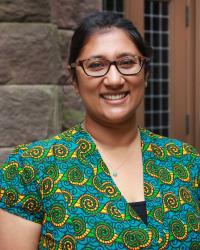
Biography
Ipsita Dey is an Assistant Professor in the Comparative History of Ideas Department at the University of Washington, and an affiliate of both the South Asia Center and the Center for Studies in Demography and Ecology. She holds a Ph.D. in Anthropology and a Graduate Certificate in Environmental Studies from Princeton University. Her work sits at the intersection of environmental anthropology, religion, diaspora, and post/plantation studies, with fieldwork grounded in the Pacific Islands.
Her current book project follows Indo-Fijian farmers in Fiji’s Sigatoka Valley, where histories of indenture, ecological transformation, and political marginalization continue to shape everyday life. Through labor, ritual, and inherited memory, these communities negotiate complex claims to land and belonging. More broadly, her research asks how people live in—and with—landscapes shaped by both violence and care. She writes on oceanic epistemologies, sacred ecologies, and the affective textures of environmental precarity. Her work has appeared in American Ethnologist Online, Environment and Society, and other public scholarship venues.
Ipsita’s research has been supported by fellowships from the Princeton Institute for International and Regional Studies, the Center for Culture, Society, and Religion, and the High Meadows Environmental Institute. She received an Honorable Mention for the Eric R. Wolf Prize in the Anthropology of Work, among other awards. At UW, she teaches courses on plantation legacies, more-than-human relations, environmental justice, and embodiment and memory. Across her teaching, writing, and mentorship, she remains committed to interdisciplinary learning, grounded fieldwork, and public-facing scholarship.